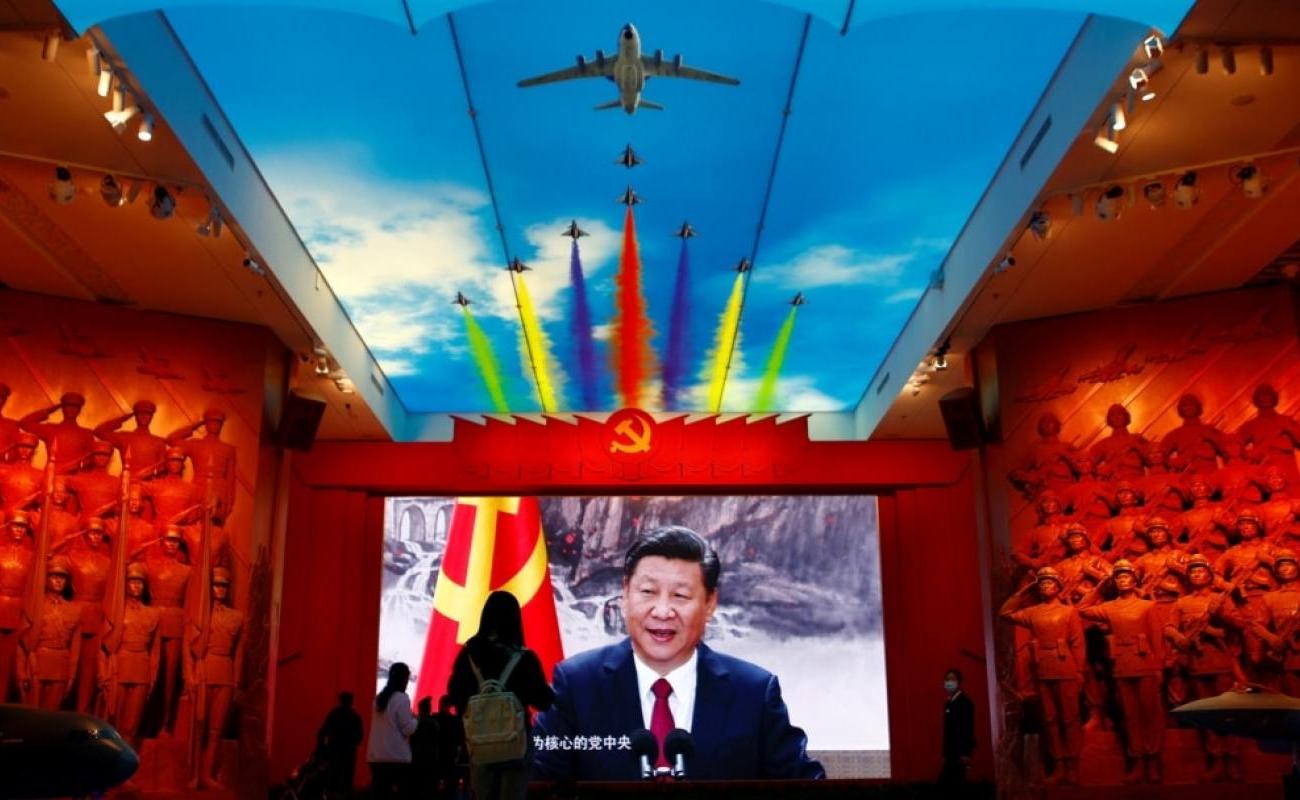China In Eurasia Briefing: Beijing And Moscow's Changing Faces

Fresh off extending Xi Jinping's hold on power with a third term, China sent new signals that the Chinese leader could be looking to double down in his "no limits" partnership with Russian President Vladimir Putin as both countries deepen their rivalry with the West.
Finding Perspective: In an October 27 phone call, Chinese Foreign Minister Wang Yi told his Russian counterpart, Sergei Lavrov, that China wants to deepen its relationship with the Kremlin "at all levels" and that Beijing firmly supports Putin's moves "to unite and lead the Russian people in overcoming difficulties" and "further establish Russia's status as a major power on the international stage."
In response, Lavrov congratulated Xi on his "utter success" at last month's Chinese Communist Party congress in Beijing, where Xi solidified his hold on power over the world's second-largest economy.
When both leaders met face-to-face in September at a summit in Uzbekistan -- their first meeting since the Ukraine war began -- Putin took a deferential tone and acknowledged Chinese concerns over the invasion, which led some analysts to speculate that Xi would then look to create some distance from Moscow following the congress.
Speaking at the Valdai Club the same day, Putin said he respected Beijing's calls for a peaceful solution to the crisis, but added that "China understands very well what the desire of the West to advance the infrastructure of the NATO bloc to our borders means for Russia."
During the call between Yi and Lavrov, Ukraine was only mentioned briefly as they discussed other "international and regional issues of common concern," according to a readout.
Why It Matters: Beijing has walked a careful line with Moscow since the Kremlin invaded Ukraine in February and despite chatter and allusions to cracks behind-the-scenes, their partnership has proven to be durable.
However, some crucial gaps between the two countries are being created, especially on the technology front.
Chinese telecoms giant Huawei has already stopped direct deliveries of its smartphones, tablets, laptops, TVs, and other equipment to Russia due to fear of violating secondary U.S. sanctions and relocated its Russia-based staff to Central Asia. According to some recent reports from Russian media, the company could soon look to close its Russian operations altogether.
The social-media platform TikTok, which is owned by China's ByteDance, already opened up a new office in Kazakhstan this year and the Russian business daily RBK reported that the company had offered to relocate its Russian staff to Central Asia.
Putin's escalating nuclear saber-rattling is also not sitting well with Beijing, according to Zhou Bo, a retired senior People's Liberation Army officer.
In a recent op-ed penned for the Financial Times, Zhou said that Putin's rhetoric was "raising the stakes for Beijing" and argued that China has a responsibility to stop Moscow from using nuclear weapons.
"If Putin now opens a nuclear Pandora's box that was kept closed even during the Cold War, it would be a moment of infinite stupidity. China can help the world by simply telling Putin: don't use nuclear weapons, Mr. President," Zhou wrote.
